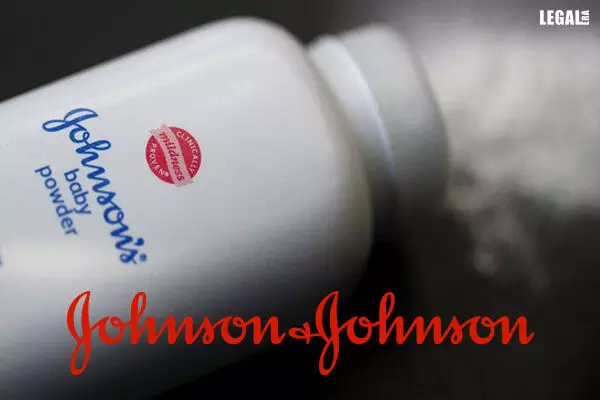- Home
- News
- Articles+
- Aerospace
- Artificial Intelligence
- Agriculture
- Alternate Dispute Resolution
- Arbitration & Mediation
- Banking and Finance
- Bankruptcy
- Book Review
- Bribery & Corruption
- Commercial Litigation
- Competition Law
- Conference Reports
- Consumer Products
- Contract
- Corporate Governance
- Corporate Law
- Covid-19
- Cryptocurrency
- Cybersecurity
- Data Protection
- Defence
- Digital Economy
- E-commerce
- Employment Law
- Energy and Natural Resources
- Entertainment and Sports Law
- Environmental Law
- Environmental, Social, and Governance
- Foreign Direct Investment
- Food and Beverage
- Gaming
- Health Care
- IBC Diaries
- In Focus
- Inclusion & Diversity
- Insurance Law
- Intellectual Property
- International Law
- IP & Tech Era
- Know the Law
- Labour Laws
- Law & Policy and Regulation
- Litigation
- Litigation Funding
- Manufacturing
- Mergers & Acquisitions
- NFTs
- Privacy
- Private Equity
- Project Finance
- Real Estate
- Risk and Compliance
- Student Corner
- Take On Board
- Tax
- Technology Media and Telecom
- Tributes
- Viewpoint
- Zoom In
- Law Firms
- In-House
- Rankings
- E-Magazine
- Legal Era TV
- Events
- Middle East
- Africa
- News
- Articles
- Aerospace
- Artificial Intelligence
- Agriculture
- Alternate Dispute Resolution
- Arbitration & Mediation
- Banking and Finance
- Bankruptcy
- Book Review
- Bribery & Corruption
- Commercial Litigation
- Competition Law
- Conference Reports
- Consumer Products
- Contract
- Corporate Governance
- Corporate Law
- Covid-19
- Cryptocurrency
- Cybersecurity
- Data Protection
- Defence
- Digital Economy
- E-commerce
- Employment Law
- Energy and Natural Resources
- Entertainment and Sports Law
- Environmental Law
- Environmental, Social, and Governance
- Foreign Direct Investment
- Food and Beverage
- Gaming
- Health Care
- IBC Diaries
- In Focus
- Inclusion & Diversity
- Insurance Law
- Intellectual Property
- International Law
- IP & Tech Era
- Know the Law
- Labour Laws
- Law & Policy and Regulation
- Litigation
- Litigation Funding
- Manufacturing
- Mergers & Acquisitions
- NFTs
- Privacy
- Private Equity
- Project Finance
- Real Estate
- Risk and Compliance
- Student Corner
- Take On Board
- Tax
- Technology Media and Telecom
- Tributes
- Viewpoint
- Zoom In
- Law Firms
- In-House
- Rankings
- E-Magazine
- Legal Era TV
- Events
- Middle East
- Africa
U.S. Bankruptcy Court Halts Lawsuits Against Johnson & Johnson

U.S. Bankruptcy Court Halts Lawsuits Against Johnson & Johnson
The U.S. Bankruptcy Court in Trenton, New Jersey has halted roughly 40,000 of lawsuits against Johnson & Johnson (in short J&J) which were alleging that its baby powder and other talc products were cancerous.
J&J had requested freezing of cases as the company attempts to reach a permanent settlement with current plaintiffs that would also set aside money for future lawsuits.
Accepting the request, the Federal Bankruptcy Judge Michael Kaplan has ordered a temporary hold on the suits that will last through mid-June.
The decision is part of J&J’s second attempt to settle thousands of talc cases in bankruptcy proceedings. Consequently, the judge also directed to stop any trials as part of a company subsidiary’s second attempt to settle cases in bankruptcy proceedings.
The pharmaceutical giant had earlier proposed $8.9 billion to settle thousands of lawsuits across North America.
Johnson & Johnson is currently facing over 40,000 lawsuits from former customers alleging that using its talc-based baby powder caused cancer, with some claiming the product contained cancer-causing asbestos.
Aside from that, J&J split off its subsidiary, LTL Management, in 2021 in order to carry out its talc-related liabilities and filed for Chapter 11 bankruptcy protection as a result.
LTL Management, a subsidiary of the company, had filed for bankruptcy a second time earlier in April to help finalize the latest deal, despite a federal appeals court’s decision in January that invalidated its first Chapter 11 filing, on the grounds the J&J unit was not in financial distress.
Bankruptcy Judge Michael Kaplan during the hearing said that J&J has an ‘uphill battle’ ahead.
Earlier in February, 2022, the judge had ruled that J&J can use the bankruptcy system to resolve talc allegations, enabling the company to avoid fighting thousands of individual lawsuits.
The judge had affirmed J&J’s use of a strategy known as the “Texas two-step,” which allows companies to split valuable assets from liabilities through a so-called divisive merger.
However, in January, the U.S. Court of Appeals for the 3rd Circuit reversed that ruling. The Appeals Court was of the view that neither LTL nor J&J had a legitimate need for bankruptcy protection because they were not in “financial distress.”
Amidst the ongoing legal fights, J&J has continued to deny the allegations that its talc products caused cancer.
Accordingly, the judge has allowed other cases to proceed with depositions and other matters as long as no trials commence. The judge clarified that new lawsuits can also be filed against J&J. The said ruling will be revisited in late May.



